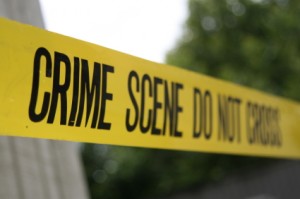 The first officers on any scene can be faced with chaos in trying to secure the scene, check for signs of life, and separate witnesses. Not to mention trying to make initial determination as to what other assistance may be needed and starting an investigation. Add all of this to having to cooperate with other EMS and police agencies on the scene, and these scene can be a struggle for even the most seasoned officer.
The first officers on any scene can be faced with chaos in trying to secure the scene, check for signs of life, and separate witnesses. Not to mention trying to make initial determination as to what other assistance may be needed and starting an investigation. Add all of this to having to cooperate with other EMS and police agencies on the scene, and these scene can be a struggle for even the most seasoned officer.
There are a few key points that every officer should follow when first arriving on the scene:
- Secure Scene
- Check for sign of life (dying declarations)
- If dead – lock down the scene
- Start a scene log for everyone entering and leaving
- Separate witnesses
- Call for investigators or extra help
- Cordon off scene – make it bigger than you think
- Decide on one path way in / out
- What is best path to preserve the scene
- Take some quick overview photos
- Limit people in the scene and the path they take
Initial scene investigation:
After a scene has been secured the next step in every investigation is to slow down. Too many scenes are rushed, and with a feeling of “the faster we move the faster we can clear up this case.” That mentality will actually undermine your investigation. Death scenes should be work slowly and methodically, not rushed.
The first approach to investigating a death is to STOP – and let the scene talk to you. The scene will speak to you if you will listen, then take what you learn, add it to the evidence collected, then make a working theory as to the events of the crime. Going about this in any other order will cause your working theory and your investigation, to go off track and stay off track.
In this episode
In this episode I take you inside the classroom where I am training patrol officers and investigators the proper response and investigation of a death scene. You will join in to an hour portion of an all day training.

Support the show by going to our Amazon Link before you shop.
To bring training to your area go to the Death Investigation Training Academy web site and see what can be offered to your area. All dita instructors are experienced and certified in their disciplines. DITA answers the question of how to bring quality death investigation training to your agency without the expense of travel and loss of work time.
coroner,police training, darren dake,sheriff,deputy,coroner association,murder scenes,auto fatalities,csi,first responders,autoerotic fatalities,become a coroner,forensic science crime scene investigation,forensic science crime,scene investigator,forensic training,forensics training,how to be a crime scene investigator,how to become a death investigator,how to become a medical examiner,how to become a medical examiner investigator,medical examiner investigator training,medical investigator training,medicolegal death,medicolegal death investigator training,murder scenes,pictures of murder scenes,murder,real murder crime scenes,traffic deaths,traffic fatalities,what does it take to be a coroner,what does it take to be a criminal investigator,firefighter,fire training,firefighter training,autoerotic fatalities,become a coroner,coroner information,crime scene clean up training,crime scene cleaning training,crime scene cleanup training,crime scene investigation,crime scene investigation classes,crime scene investigator courses,crime scene investigator school,crime scene jobs,crime scene photography,crime scene photography training,crime scene technician,crime scene technician training,crime scene training,criminal investigation,criminal investigator,criminal justice,criminal justice forensic science,criminal justice forensics,criminal scene investigation,death crime scenes,death investigation training,death investigator training,death investigators,forensic death investigator,forensic investigator,forensic photography, crime scene clean up,crime scene bio-hazard, using plants in criminal investigation,forensic botany,dr.jane bock,joe giacalone
1 comment on “Arrival and Cooperation at Crime Scene”
Leave a Reply
You must be logged in to post a comment.

I saw this, Call for investigators or extra help. But I didn’t see this, Call the Medical Examiner or Coroner. The Missouri statues say, the first law enforcement officer or medical attendant to discover a deceased individual, shall call the medical examiner or coroner Immediately.